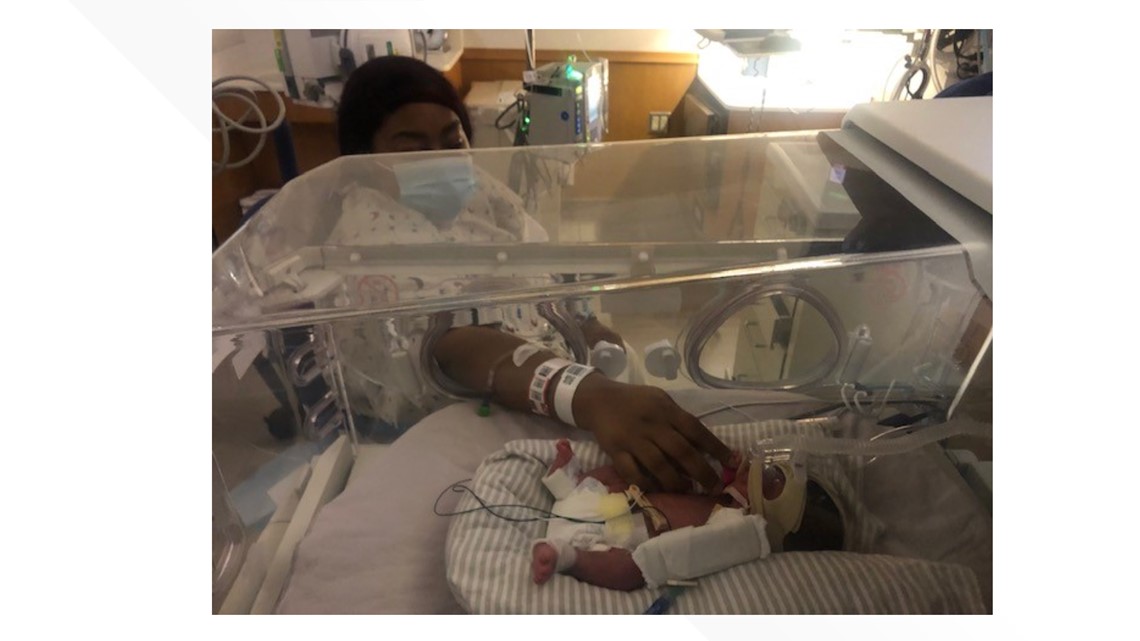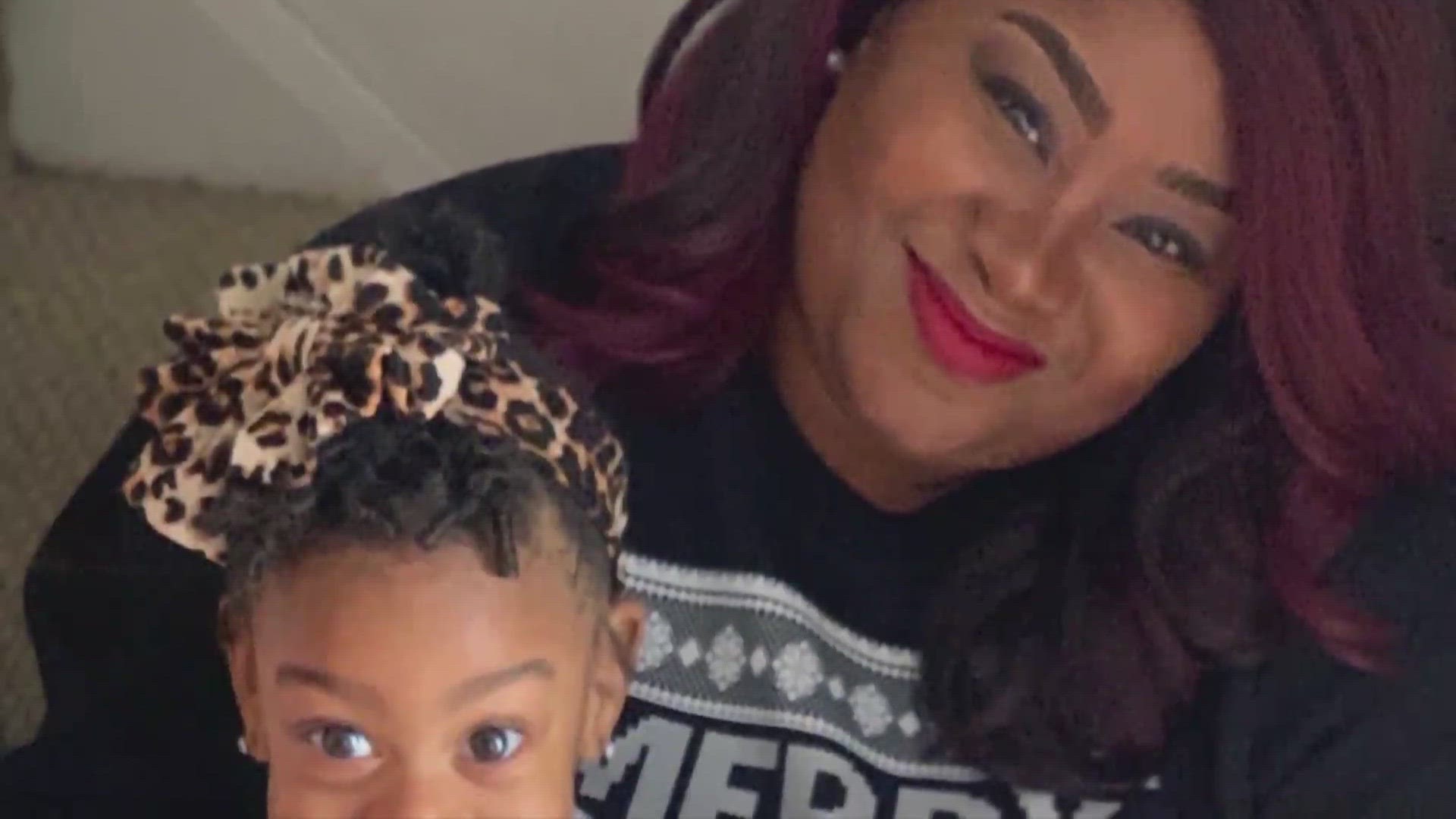WASHINGTON — When Ebony Ford was pregnant with her first child, she and her husband were thrilled. But just 26 weeks into her pregnancy, things took a turn. Ford went into early labor and was placed on life support after giving birth to a 1-pound baby girl.
"I had raised my concerns prior to her birth about swelling and other things and they were fiercely ignored and dismissed," said Ford.
Doctors later diagnosed her with HELLP (Hemolysis, Elevated Liver enzymes and Low Platelets) Syndrome, the most severe form of preeclampsia, a serious blood pressure condition that develops during pregnancy. Something that could have been prevented, and was missed at her prenatal appointments.
"I was essentially in liver failure, kidney failure, extremely high blood pressure and on the verge of stroke and body collapse," said Ford.
Despite those complications, several years later Ford and her husband were able to expand their family. In early April 2023, she gave birth to a baby boy. Their son, Roman, was born at 31 weeks, weighing 2 pounds 14 ounces.


Ford says she had symptoms of preeclampsia during her second pregnancy, but with amazing care from a different team, she and baby Roman are both doing well.
"Having all of those extra moments early on have meant so much. I'm just very grateful for a starkly different outcome," said Ford.
In 2021, the United States recorded one of the worst rates of maternal mortality ever. According to the Centers for Disease Control 1,205 women died in connection with childbirth that year, a significant jump compared to 861 from the year before. According to the latest numbers, Black women are nearly three times more likely to die from childbirth complications than their white counterparts.
Dr. Tamika Auguste is chair of Women’s and Infants’ Services at MedStar Washington Hospital Center. She focuses on bringing health equity to maternal health care.
"It is not an easy pill to swallow, but all the evidence comes back to the fact that most of this lies not only on the medical conditions, but bias. Unconscious and conscious bias," Dr. Auguste said.
Dr. Auguste adds that having awareness about one's bias around Black maternity patients is a great first step toward change.
Ford says she was diligent in doing her research to find the right care team before deciding to expand her family. She wanted to do everything she could to ensure she wouldn't end up a statistic.
"I have a husband, I have a daughter and I didn't want to lose my life bringing another life into this world," said Ford.
The mother of two tells WUSA9 the numbers released every year by the CDC are fuel to keep her sharing her story with others.

